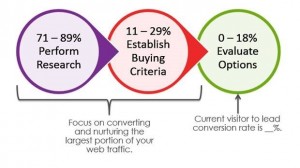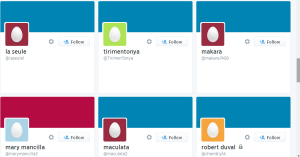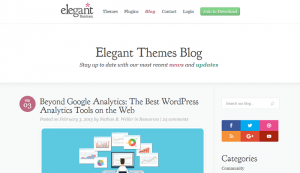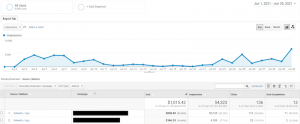Artificial Intelligence is no longer a science fiction storyline, but a concrete reality that is revolutionizing countless businesses across many industries. In fact, 62% of enterprises are expected to be using AI by next year, with the AI market growing to $ 47 billion by 2020. The staffing and recruiting field is no exception.
It currently takes a specific skill set and mentality to succeed in a recruiting career, but will the successful recruiters a decade from now look different from successful recruiters today? While some worry about job security and others rejoice because of role improvements, here’s how the future of AI will impact your job as a recruiter.
Applicant Tracking Systems Adapt First
The first palpable change AI will cause to your role as a recruiter will be in rapidly evolving Applicant Tracking Systems. An ATS may already be a centralized portal and database that you rely on to keep track of and manage candidates, but AI can grant that tool a tremendous amount of new capabilities only limited by the imagination of developers.
Picture an ATS that can instantly search and compile a candidate’s available public information from social media and search engines, providing not just a personality assessment but also a schedule of the hours that candidate is most digitally active. Combine it with instant background checks and revolutionized automated resume screening, and matching the right candidates to the right roles and knowing when and how to contact them will be easier and more effective than ever.
With tech behemoths like Google entering the ATS foray, the software you use every day is set to quickly become smarter and more robust. Programs already exist that can analyze recorded interviews by scanning facial movements and voice patterns to gauge emotional intelligence and truthfulness, and this information could be instantly available and compiled in a future ATS. At the very least, every administrative task your recruiting role requires will be streamlined, laying the foundation for you to more easily build a real relationship upon.
Marketing Automation Quickly Follows Suit
AI and automation often go hand in hand, and as ATS capabilities evolve so too will the way candidates are marketed to. According to a survey of 500 staffing and recruiting firms, only 32% said they send candidates emails on a regular basis. In an effort to improve communication, talent acquisition departments are increasingly partnering with marketing departments, working in tandem to capture the interest of candidates.
Once again, this is an area that AI will streamline and improve. Artificial intelligence thrives on data, and marketing communications provide figures such as which candidates opened a correspondence, if they clicked on a link, how long they spent on a page, and even where they scrolled to on the page. AI can take this into account in order to tailor future correspondences to each individual.
Artificial assistants like Mya already exist, and are able to chat with candidates and effectively begin the process of vetting candidates and setting up initial interviews, all while recording valuable data. Likewise, new technology uses predictive signals to determine when qualifying passive candidates are likely wanting a new job and can alert recruiters accordingly. At a time when 46% of recruiters say finding qualified candidates is their biggest obstacle, AI can be extremely valuable.
Relationships Become More Important Than Ever
As AI and automation take the staffing and recruiting field by storm, it will be tempting for many organizations to take the easy way out and rely too much on new technology. Cognitive recruiting AI chatbots like Karen, based on IBM’s Watson, can help keep candidates engaged throughout the process, but the human touch is irreplaceable when building trusted and lasting relationships. 72% of candidates find current recruiting through digital channels to be “spammy” and impersonal.
While AI can improve those communications, a balance must be found to utilize such software alongside recruiters and not in place of them. When many organizations start to heavily rely on automated recruiting chatbots and inundate candidates with messaging, those candidates will take notice of human recruiters personally reaching out to them. Those that hold the historically vital relationship-building skills will be the recruiters that are most in demand.
AI Will Impact Your Job as a Recruiter
The technological innovations and subsequent role changes set to take place in the industry can leave a recruiter both excited and concerned. There’s no doubt a stigma already surrounds the recruiting role, and it does not take much to push an interested candidate away. As long as you focus strongly on relationship-building, utilize the improvements AI can bring, and place yourself in an organization that understands the right balance between the two, your career as a recruiter can be a long and fruitful one.
Business & Finance Articles on Business 2 Community(68)
Report Post






